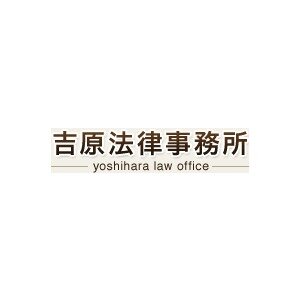Best Disability Lawyers in Japan
Share your needs with us, get contacted by law firms.
Free. Takes 2 min.
Or refine your search by selecting a city:
List of the best lawyers in Japan
About Disability Law in Japan
Disability Law in Japan has evolved significantly over the years to provide more comprehensive protection and rights for individuals with disabilities. The legal framework is designed to promote social inclusion, equal opportunities, and prohibit discrimination based on disabilities. Key legislation includes the Basic Act for Persons with Disabilities, which outlines fundamental principles and measures to support the independence and participation of people with disabilities in society. Additionally, the Act on the Elimination of Disability Discrimination prohibits both direct and indirect discrimination in various facets of life, such as education, employment, and access to public services.
Why You May Need a Lawyer
There are several scenarios where legal expertise may be beneficial for individuals with disabilities in Japan. These include:
- Experiencing discrimination in employment or education due to a disability.
- Navigating the complexities of social welfare benefits and disability pensions.
- Seeking reasonable accommodations in the workplace or educational institutions.
- Dealing with accessibility issues in housing or public spaces.
- Advocating for the rights and benefits of a person with a disability.
- Understanding and applying for guardianship for individuals who require assistance with decision-making.
- Resolutions of disputes related to disability rights.
Local Laws Overview
Japan's disability laws center around key legislation aimed at protecting the rights and promoting the well-being of persons with disabilities. Here are some highlights:
- Basic Act for Persons with Disabilities: Establishes the fundamental principles and direction for policies addressing disabilities, emphasizing self-reliance, social participation, and equal treatment.
- Act on the Elimination of Disability Discrimination: Prohibits unfair discriminatory treatment and requires reasonable accommodation in areas such as employment and education.
- Employment Promotion Act for Disabled Persons: Encourages the employment of individuals with disabilities by mandating quotas for employers and providing vocational training.
- Welfare Act for Persons with Physical Disabilities: Provides for the welfare, healthcare, and protection of individuals with physical disabilities.
- Mental Health and Welfare Act: Addresses the rights, treatment, and welfare of people with mental health conditions.
Frequently Asked Questions
1. What constitutes a disability under Japanese law?
A disability in Japan is generally defined as a physical or mental condition that substantially limits one or more major life activities. This includes conditions that affect movement, vision, hearing, communication, cognition, and mental health.
2. What is reasonable accommodation?
Reasonable accommodation refers to necessary and appropriate modifications or adjustments that do not impose a disproportionate or undue burden, to ensure that individuals with disabilities can enjoy or exercise rights on an equal basis with others.
3. Are employers required to meet certain quotas for hiring individuals with disabilities?
Yes, Japanese law requires employers to hire a certain percentage of employees with disabilities. Private sector companies must have at least 2.3% of their workforce composed of individuals with disabilities, with varying rates for public sector employers.
4. How can someone report disability discrimination in Japan?
Individuals who experience discrimination can file complaints with local government offices responsible for disability welfare, or seek advice from legal professionals specializing in disability law.
5. What types of financial support are available for people with disabilities?
Various forms of social welfare support, including disability pensions, allowances, and subsidies for medical and daily living expenses, are available to qualified individuals through national and local government programs.
6. Are there educational support services for students with disabilities?
Yes, the Japanese education system provides specialized support, including individualized education programs, special needs schools, and integration support in regular schools.
7. Is public transportation accessible for people with disabilities?
Efforts have been made to increase accessibility in public transportation systems, with many train stations, buses, and other transit options offering facilities like elevators, ramps, and designated seating.
8. How can a family member apply for guardianship of a person with intellectual disabilities?
The application process for guardianship involves submitting a request to the family court, which will assess the individual’s needs and the suitability of the candidate to be appointed as a guardian.
9. What are some common barriers faced by individuals with disabilities in Japan?
Common barriers include physical accessibility issues, such as inaccessible buildings, lack of awareness or prejudice in society, limited employment opportunities, and insufficient accommodation in educational settings.
10. How can someone obtain legal representation for a disability-related case in Japan?
Individuals can seek out specialized legal aid services, lawyers, or firms with expertise in disability law. The Japan Federation of Bar Associations and local bar associations can also be valuable resources in finding legal representation.
Additional Resources
If you or someone you know needs additional information or support, the following resources may be helpful:
- The Japan Federation of Bar Associations provides resources and referrals for legal assistance.
- Local government offices often have divisions dedicated to disability welfare and services.
- The Japan Disability Forum is an organization advocating for the rights and welfare of individuals with disabilities.
- Social Welfare Councils in various regions provide support services and information on welfare benefits.
Next Steps
If you require legal assistance regarding disability issues in Japan, consider the following steps:
- Identify the specific issues you are facing and gather any relevant documentation.
- Consult with local disability support services to understand your rights and available support options.
- Seek out legal professionals or organizations with expertise in disability law for advice and representation.
- Contact governmental bodies or legal aid organizations to explore your options for legal support or mediation services.
Lawzana helps you find the best lawyers and law firms in Japan through a curated and pre-screened list of qualified legal professionals. Our platform offers rankings and detailed profiles of attorneys and law firms, allowing you to compare based on practice areas, including Disability, experience, and client feedback.
Each profile includes a description of the firm's areas of practice, client reviews, team members and partners, year of establishment, spoken languages, office locations, contact information, social media presence, and any published articles or resources. Most firms on our platform speak English and are experienced in both local and international legal matters.
Get a quote from top-rated law firms in Japan — quickly, securely, and without unnecessary hassle.
Disclaimer:
The information provided on this page is for general informational purposes only and does not constitute legal advice. While we strive to ensure the accuracy and relevance of the content, legal information may change over time, and interpretations of the law can vary. You should always consult with a qualified legal professional for advice specific to your situation.
We disclaim all liability for actions taken or not taken based on the content of this page. If you believe any information is incorrect or outdated, please contact us, and we will review and update it where appropriate.
Browse disability law firms by city in Japan
Refine your search by selecting a city.












